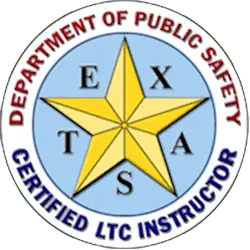Understanding Gun Laws in Texas: What You Need to Know.
Texas has long been known for its strong gun culture, with a rich history of firearm ownership and use. From the Alamo to the present day, guns have played a pivotal role in shaping the state’s identity. However, understanding the legal landscape of gun ownership in Texas can be complex, as state laws evolve in response to both local and national events. Whether you’re a current resident, a newcomer, or simply someone curious about Texas gun laws, it’s essential to stay informed.
In this post, we’ll explore key aspects of gun laws in Texas, including who can own a gun, where you can carry it, and how these laws compare to other states.
The Basics of Gun Ownership in Texas
Texas is one of the most gun-friendly states in the U.S. with a long-standing tradition of firearm ownership rights. The state constitution enshrines the right to keep and bear arms, reflecting the strong public sentiment towards protecting gun rights. Here are the basics:
- Eligibility to Own a Firearm
In Texas, you can legally own a firearm if you meet the following general criteria:- You must be at least 18 years old to purchase a rifle or shotgun.
- You must be at least 21 years old to purchase a handgun from a federally licensed dealer.
- You cannot have a felony conviction or a domestic violence conviction.
- You must be a U.S. citizen or legal resident.
- Background Checks
While Texas does not require background checks for private sales of firearms (such as transactions between family members or private individuals), you must undergo a background check when purchasing firearms from a federally licensed dealer (FFL). The background check is conducted through the National Instant Criminal Background Check System (NICS).
Concealed and Open Carry Laws
One of the key features of gun laws in Texas is the state’s stance on carrying firearms, both openly and concealed.
- Concealed Carry
Texas law allows individuals with a valid License to Carry (LTC) to carry a concealed handgun. To qualify for a LTC, you must meet several requirements, including:- Being at least 21 years old (18 if you are a member of the military).
- Completing a background check.
- Taking a handgun proficiency course.
- Submitting fingerprints for a criminal background check.
- Open Carry
Open carry of handguns is also legal in Texas, but only for individuals with an LTC. Texas law permits handguns to be carried openly in a holster, visible to others. There are, however, limitations. For instance, open carry is not permitted in certain places such as schools, polling places, or amusement parks.
Recent Changes to Gun Laws in Texas
The state of gun laws in Texas has been evolving in recent years, particularly in the areas of constitutional carry and firearm regulations.
- Constitutional Carry (2021)
In 2021, Texas became the 21st state to adopt constitutional carry, which allows legal gun owners to carry a handgun without needing a permit, as long as they meet basic eligibility requirements (i.e., not being a felon or prohibited person). This law allows both open carry and concealed carry without an LTC for individuals who are legally allowed to own a firearm.While this law is a significant shift in Texas’ approach to gun rights, it’s important to remember that it does not apply to everyone. Private property owners and certain establishments can still prohibit guns on their premises. - Red Flag Laws
Texas does not have a red flag law (also known as an Extreme Risk Protection Order), which would allow law enforcement or family members to petition a court to temporarily remove firearms from someone deemed to be a danger to themselves or others. However, there are other forms of legal intervention, such as emergency protective orders, that can temporarily restrict a person’s access to firearms.
Gun-Free Zones and Restrictions
While gun laws in Texas are generally permissive, there are specific areas where firearms are not allowed. Some of these include:
- Schools: Guns are prohibited on public school campuses, daycare centers, and private schools.
- Government Buildings: Guns are not allowed in most government buildings unless the person is a law enforcement officer or has specific permission.
- Private Property: Landlords and business owners have the right to prohibit guns on their property, and they can post signs indicating their intent.
It’s crucial for gun owners to be aware of these restrictions to avoid legal issues. Violating gun-free zone laws can result in criminal charges, including misdemeanor or felony offenses.
The Debate Over Gun Laws in Texas
Despite Texas’ reputation as a gun-friendly state, gun laws in Texas are not without controversy. There are ongoing debates over how to balance gun rights with public safety. Proponents of relaxed gun laws argue that firearms are an essential part of personal defense and the state’s culture. On the other hand, critics of the current laws point to concerns about gun violence and the need for stronger regulations, such as universal background checks and bans on assault-style weapons.
In response to these concerns, lawmakers continue to review and revise Texas gun laws, though major changes are often met with resistance from pro-gun advocacy groups. This means that Texas residents need to stay informed about the evolving legal landscape.
Conclusion on gun laws in Texas
In summary, gun laws in Texas offer extensive rights to gun owners, particularly with recent expansions of concealed and open carry options through constitutional carry. However, there are still key restrictions and legal nuances that gun owners must navigate, from prohibited places to eligibility requirements. Understanding the full scope of these laws is critical for anyone who owns a firearm or plans to carry one in Texas. As gun laws continue to evolve, staying up to date with changes and understanding the implications of new legislation is more important than ever. Whether you’re a lifelong Texan or new to the state, it’s essential to approach gun ownership responsibly and stay informed about the laws that protect your rights and your safety.


